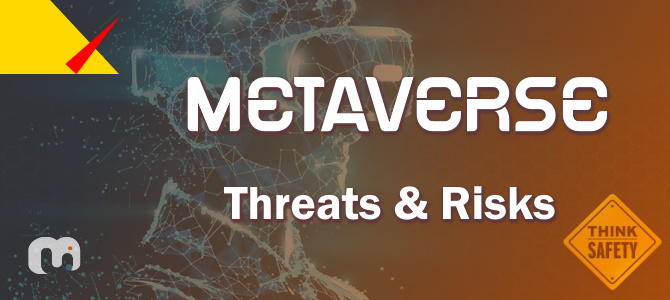
Web safety experts are raising alarms about safety and privacy of users in the metaverse. All the so-called Big TECH companies have begun to invest extensively in some form or another, and it is apparent that the Metaverse is rapidly evolving. It’s no more – “An experiment by a few tech giants”. It’s becoming an inevitable alternative to reality. As a result, resisting it or neglecting it is a bad idea. I would recommend you start asking questions.
Questions like these:
- Is it a fair and equitable place?
- How democratic will it be?
- What lines do we need to draw to protect ourselves?
- Does the metaverse ensure privacy? and above everything else
- Will it be safe for everyone?
It is important to ask these questions because there are increasing reports of crimes in the Metaverse.
On Nov 26 2021, a beta tester reported something deeply troubling: she had been groped by a stranger on Horizon Worlds. She posted her experience in the Horizon Worlds beta testing group on Facebook. Post internal review of the incident, Meta stated that the beta tester should have used a tool called “Safe Zone” that’s part of a suite of safety features built into Horizon Worlds. Safe Zone is a protective bubble users can activate when feeling threatened.
Later in Dec last year, a San Francisco based woman – strapped her Meta’s Oculus headset to play her favourite game. When she entered the game, her digital avatar was approached by another a stranger who broke and harassed her avatar digitally. When asked, he simply replied, “I don’t know what to tell you. It’s the metaverse — I’ll do what I want”. It’s horrific and not a one-off incident.
According to the Centre for countering digital hate – a violent incident occurs every seven minutes on a popular virtual reality world – VR Chat. Researchers with the Center for Countering Digital Hate (CCHD), a non-profit that analyses online hate and misinformation, spent nearly 12 hours recording activity on VR Chat. The group logged an average of one infringement every seven minutes, including instances of sexual content, racism, abuse, hate, etc. often with minors present. The organization shared its data logs of more than 100 such incidents.
This makes the concept problematic. Bad behaviour in the metaverse can be more severe than today’s online harassment and bullying. You see virtual reality plunges you into a digital environment. The slightest of touch or sensory experience is heightened and it is exaggerated to give you an immersive experience. So, every crime that is committed can feel much more real and much more intense and these issues are likely to get magnified once the metaverse expands.
- How do the companies plan to address the safety concerns?
- How do they plan to ensure privacy and safety of digital avatars?
Well, one of the Meta executives said in an interview, that moderating what people say and how they act in the metaverse is practically impossible. This brings us back to the same question – How safe is the metaverse? especially for children.
For most of the tech companies the target audience are children and teenagers who are always on the Internet. Studies have proven that metaverses are not safe for children. Several crimes have been reported like children being exposed to graphic sexual content, Children being groomed to repeat racist slurs, Children adopting extremist views from strangers and children being subjected to sexual harassments. And it’s apparently practically impossible to stop it at this point.
My point is quite simple. Metaverse can potentially change the world for the better. But it can also become a bigger threat, as a tool for predators to commit crimes online and get away with it. We are living in strange times where our social life is being restricted due to a deadly virus in the past couple of years. We are relying on technologies to fill the void. The Metaverse promises to give us a second life – an online world, where you can interact, meet, shop, party and even build a house if you want to. But remember none of it will be real. It’s all made to make you forget the reality and to escape the uniquely human elements of life. These sensory experiences cannot replace real emotions. The metaverse can be a temporary shift for your mind, but that cannot become a second life. At its best, it would be a detained reality.






